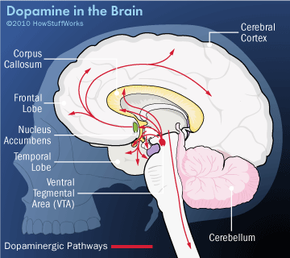Key Takeaways
- Neurochemistry plays a crucial role in happiness.
- Key neurotransmitters like serotonin, dopamine and endorphins influence mood.
- Understanding neurochemistry can inform strategies for enhancing well-being.
The ancient Greeks were among the first to explore the link between the physical body and our emotional responses. They created the concept of the four humors -- yellow bile, black bile, blood and phlegm -- to explain the differences in personalities among humans [source: Wilson]. All four humors are present in each person; too much or too little of one created an imbalance that formed the notable personality traits in an individual.
Although the effects of phlegm and bile as humors have long since been dismissed as theories, after 2,400 years, the link between the physical and the emotional has come into focus once more. In the 21st century, the field of neuroscience proposes that happiness -- like every other emotional experience -- is the result of electrochemical reactions in the brain brought on by stimuli.
Advertisement
This revelation is part of the neuroscience revolution, the fifth revolution in the understanding of humanity and our nature, with Copernicus, Darwin, Freud and the discovery of DNA providing the foundations for the first four [source: Ramachandran]. This fifth revolution is based on Francis Crick's "astonishing hypothesis," that "'you,' your joys and sorrows, your memories and your ambitions, your sense of personal identity and free will, are in fact no more than the behavior of a vast assembly of nerve cells and their associated neurons" [source: Crick].
This idea is supported by the discovery in the 1960s of a reward system in the brains of rats and later humans. When stimulated, a series of regions in the brain associated with the release of pleasure-inducing chemicals are activated. At the center of the system is the nucleus accumbens. This part of the brain is responsible for characteristics we associate with feelings of happiness, like laughter and euphoria [source: Cardoso].
The nucleus accumbens gets what you might call fuel for pleasurable sensations from the ventral tegmental area (VTA), which responds to pleasurable sensation signals from the cerebral cortex. The VTA floods the nucleus accumbens and other regions in the system with the neurotransmitter dopamine, a hormone associated with pleasure.
Other regions of the brain complete the reward system and reveal the purpose of not only the reward center, but also perhaps the basis of happiness itself. During a reward response, the prefrontal cortex also activates; this focuses the individual's attention and ultimately conditions the person to repeat the task that led to this reward.
When eating a food we like, receiving comfort by the touch of another person, or experiencing a victory in everyday life, this stimulus is perceived as reward-worthy by the cerebral cortex. In other words, under evolutionary theory, there is some benefit to the stimulus. Our brains teach us, in effect, to engage again in whatever behavior lead to that stimulus. Emotions like happiness, then, are nothing more than motivators that enhance an organism's chances of survival.
Exactly how we derive pleasure from hormones like dopamine isn't quite clear. At this point in history, science has only managed to show a correlation between dopamine and pleasure. Chiefly, in tests that blocked or reduced the neurotransmitter, sensations of pleasure or pleasure-seeking activities like eating declined. We can also anticipate that a situation or experience will also lead to pleasure, and dopamine levels have been shown to increase during periods of such anticipation, further bolstering our ability to carry out behaviors that give us pleasure.
Happiness isn't simply a pleasurable feeling, however. It's much more complex than that. Research has also implicated other hormones, like progesterone, oxytocin and testosterone, in producing other aspects of happiness, like a sense of well-being and connectedness with others.
Advertisement
